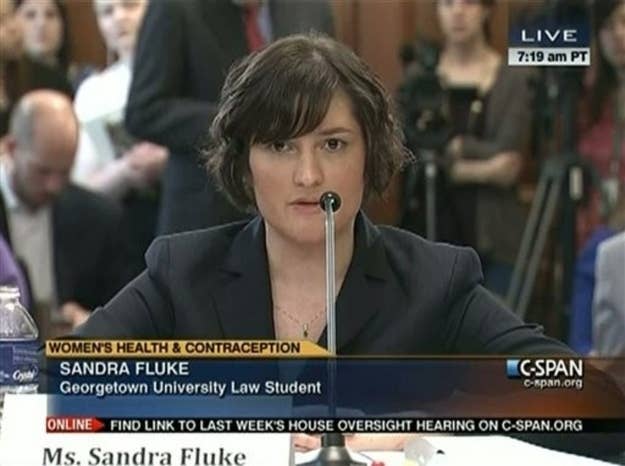
As the public battle over contraception rages on, Rush Limbaugh and his allies are also fighting over a footnote: The Georgetown University health care plan that sparked the debate may actually cover birth control in some of the medical situations that activist Sandra Fluke made part of her case.
That detail may not change the politics of the issue, which slipped out of the GOP's grasp when Limbaugh called Fluke a "slut" (an attack for which he later apologized). But a look at the publicly available summary of Georgetown's health care plan, and at elements of Fluke's testimony, suggest that Georgetown's policy is in line with the traditional Catholic teaching that allows the use of the birth control pill for reasons other than preventing pregnancy.
According to Georgetown's student insurance handbook, available online, there are exceptions to the Jesuit school's rule against covering birth control, which are "specifically provided in the policy."
The details of the exception are not readily available to non-students, and a university spokesperson did not immediately respond to requests to comment. But in her initial testimony, Fluke said that the university's policy does cover some contraception for women who need it for medical purposes.
Here's a key paragraph from Fluke's testimony, flagged by Glenn Beck's site The Blaze:
A friend of mine, for example, has polycystic ovarian syndrome and has to take prescription birth control to stop cysts from growing on her ovaries. Her prescription is technically covered by Georgetown insurance because it’s not intended to prevent pregnancy. Under many religious institutions’ insurance plans, it wouldn’t be, and under Senator Blunt’s amendment, Senator Rubio’s bill, or Representative Fortenberry’s bill, there’s no requirement that an exception be made for such medical needs.
Fluke went on to recount the story of her friend who, dogged by stubborn university bureaucracy and skeptical insurance representatives, was ultimately denied coverage, and stopped taking the contraceptive medication she had been prescribed. This led to her hospitalization and serious health consequences.
It's a tragic story, but one—it's worth noting—that might not have taken place if Georgetown had followed the policies it had in place.
On his show Monday, Limbaugh wondered aloud about the details of the policy: "And let's be clear on something else. I haven't called Georgetown to see if they pay for birth control pills when being used to treat [Fluke's friend's] medical conditions. I have no idea if they do or don't."
Indeed, Fluke's own testimony—and the summary of the school's health care plan online—would seem to suggest that they are supposed to.
The birth control debate has slipped far from that kind of technical dispute, and has been consumed by inflammatory rhetoric and the big ideas of religious liberty and reproductive rights. The detail, though, reflects both the Church's attempt at nuance as well as its own informal, unstated compromises on the issue.
